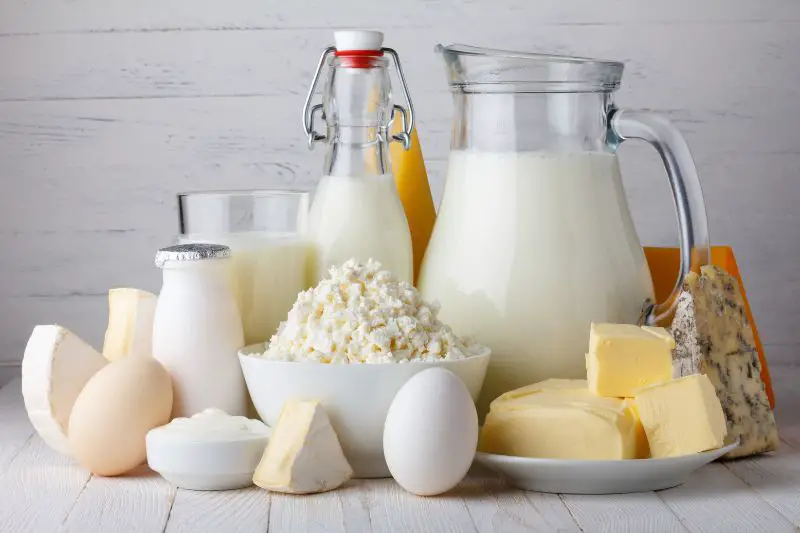
Have you ever wondered why some people are willing to pay a premium for organic products while others stick to conventional options? The organic market is booming, with shelves stocked full of everything from pesticide-free vegetables to ethically sourced coffee. But who exactly is driving this demand? What makes consumers choose organic over non-organic, and how can businesses effectively reach them?
In this article, we’ll dive deep into the world of organic consumers—exploring their demographics, motivations, and shopping behaviors. Whether you’re an entrepreneur looking to tap into this lucrative market or just curious about what fuels the organic movement, this guide will give you the insights you need. Let’s uncover who really buys organic and why!
The Growing Demand for Organic Products

Organic products are no longer a niche trend—they are a booming global industry. Consumers are increasingly prioritizing health, sustainability, and ethical sourcing, driving significant growth in the organic market. Understanding these trends is essential for businesses looking to tap into this expanding sector.
Market Growth and Consumer Trends
The organic food and beverage market has experienced rapid growth over the past decade. According to the Research Institute of Organic Agriculture (FiBL) and IFOAM, the global organic market surpassed $120 billion in sales in recent years, with North America and Europe leading the way. The U.S. alone accounts for over 40% of global organic sales, highlighting the region’s strong demand.
This surge is fueled by several key consumer trends:
- Health-conscious living – More consumers associate organic foods with better nutrition and fewer harmful chemicals.
- Sustainability concerns – Shoppers are actively seeking environmentally friendly products that reduce their carbon footprint.
- Transparency and trust – Consumers increasingly demand clear labeling and ethical sourcing information.
Key Drivers of Demand
Several factors contribute to the rising demand for organic products:
Health and Wellness Awareness
A growing number of consumers believe organic food is safer and healthier. According to a study by the Organic Trade Association (OTA), 82% of U.S. households purchase organic products at least occasionally, with health benefits cited as the top reason.
Examples:
- Parents often prefer organic baby food to avoid synthetic pesticides.
- Fitness enthusiasts seek organic protein powders and superfoods.
Environmental and Ethical Considerations
Consumers are more aware of how food production impacts the planet. Organic farming promotes biodiversity, reduces soil degradation, and minimizes chemical runoff, making it an attractive choice for environmentally conscious shoppers.
Example:
- Organic coffee brands that emphasize fair trade and sustainable farming practices attract ethically minded consumers.
Influence of Younger Generations
Millennials and Gen Z are shaping the future of organic consumption. These generations prioritize ethical and sustainable purchasing decisions, actively seeking brands that align with their values. Studies show that over 50% of Millennials are willing to pay more for organic products compared to previous generations.
Example:
- The rise of organic snack brands catering to young, eco-conscious buyers.
Who Is the Target Market for Organic Products?

Understanding the target market for organic products is essential for businesses looking to succeed in this growing industry. Consumers of organic goods are not a homogenous group—they vary by age, income, values, and purchasing behavior. By identifying key customer segments, brands can tailor their marketing strategies to effectively reach and engage the right audience.
Demographic Segmentation
Different age groups and income levels influence the organic market in unique ways.
Age Groups
- Millennials (25-40 years old) – The largest consumer base for organic products, driven by health-consciousness, sustainability concerns, and social responsibility.
- Gen Z (18-24 years old) – A growing segment that values transparency, ethical sourcing, and digital engagement with brands.
- Baby Boomers (55+ years old) – Willing to pay for premium products, often focusing on organic foods for health benefits.
Example: Organic meal kit services have successfully targeted Millennials and Gen Z by offering convenient, high-quality, and ethically sourced ingredients.
Income Levels and Purchasing Power
- Higher-income households – More likely to purchase organic regularly, as they can absorb the premium cost.
- Middle-income consumers – Interested in organic products but may be selective due to pricing concerns.
- Budget-conscious shoppers – Typically buy organic when discounts or private-label organic options are available.
Psychographic Segmentation
Beyond demographics, consumer values and lifestyle choices play a critical role in organic purchasing behavior.
Health-Conscious Consumers
Shoppers who prioritize personal well-being are drawn to organic products for their perceived nutritional benefits and lack of synthetic additives.
Example: Organic juice brands often market their products with messaging around immunity-boosting ingredients and clean-label formulations.
Environmentally Aware Shoppers
Sustainability-minded consumers look for products that minimize environmental impact, such as organic produce grown with regenerative farming practices.
Example: Eco-conscious consumers are more likely to choose organic cotton clothing due to its reduced pesticide use.
Ethical Consumers
A growing segment supports fair trade, cruelty-free, and ethically sourced products, ensuring their purchases align with their values.
Example: Organic chocolate brands that highlight fair trade certification attract buyers who care about ethical labor practices.
Behavioral Segmentation
Analyzing consumer shopping habits helps businesses refine their marketing approach.
Frequency of Purchase
- Regular buyers – Committed to an organic lifestyle, purchasing across multiple categories (food, skincare, household products).
- Occasional buyers – Choose organic selectively, often for specific items like dairy, produce, or baby products.
Shopping Preferences
- Online shoppers – Increasingly purchasing organic products through e-commerce platforms and subscription services.
- Supermarket buyers – Prefer convenience and availability at major grocery stores.
- Farmers’ market shoppers – Value direct sourcing, freshness, and supporting local producers.
Key Takeaways for Businesses
To effectively reach the organic market, brands must:
- Identify their primary consumer segments and tailor messaging accordingly.
- Highlight key benefits—whether health, sustainability, or ethical sourcing—based on target audience priorities.
- Utilize the right distribution channels, from e-commerce to in-store promotions, to maximize accessibility.
What Motivates Consumers to Buy Organic?

Consumers choose organic products for a variety of reasons, ranging from personal health to environmental responsibility. Understanding these motivations allows businesses to craft targeted marketing messages that resonate with their audience. By addressing the core drivers behind organic purchases, brands can strengthen customer trust and loyalty.
Health Benefits and Safety
One of the primary reasons consumers opt for organic products is the belief that they are healthier and safer. Organic foods are grown without synthetic pesticides, genetically modified organisms (GMOs), or artificial additives, making them an attractive choice for health-conscious shoppers.
Perceived Nutritional Value
Studies suggest that organic fruits, vegetables, and dairy may contain higher levels of certain antioxidants and essential nutrients. While the overall nutritional difference between organic and conventional foods remains a topic of debate, many consumers perceive organic products as a healthier option.
Example: Organic dairy products, such as milk and yogurt, often highlight higher omega-3 fatty acid content compared to their non-organic counterparts.
Avoidance of Chemicals and Additives
Consumers concerned about pesticide exposure and artificial preservatives turn to organic products as a safer alternative. Parents, in particular, are more likely to choose organic baby food to minimize their child’s exposure to synthetic substances.
Example: Organic snack brands often emphasize “free from artificial colors, flavors, and preservatives” in their packaging to appeal to ingredient-conscious buyers.
Environmental Concerns
Sustainability is a growing priority for modern consumers, influencing purchasing decisions across multiple industries. Organic farming methods promote soil health, biodiversity, and reduced chemical runoff, making organic products an appealing choice for environmentally aware shoppers.
Reducing Carbon Footprint
Organic farming practices focus on sustainability by using crop rotation, composting, and natural fertilizers. Consumers who prioritize reducing their environmental impact are more likely to support brands committed to these practices.
Example: Organic tea brands that source from farms using regenerative agriculture often attract eco-conscious buyers.
Supporting Sustainable Agriculture
Shoppers who care about long-term food security and responsible land use see organic products as a way to support sustainable farming. Many are willing to pay a premium for goods that contribute to environmental preservation.
Example: Organic cotton clothing brands that highlight water conservation efforts and pesticide-free farming appeal to ethical fashion consumers.
Ethical and Social Responsibility
Beyond personal health and environmental impact, many consumers purchase organic products to align with their ethical values. Transparency in sourcing and fair labor practices play a significant role in purchasing decisions.
Fair Trade and Ethical Sourcing
Organic products that also carry fair trade certification appeal to consumers concerned about worker welfare and ethical supply chains. These shoppers look for brands that ensure fair wages and humane working conditions.
Example: Fair trade-certified organic coffee brands attract customers who value both sustainability and ethical labor practices.
Animal Welfare
Many organic consumers are also advocates for humane treatment of animals. Organic meat, dairy, and eggs must meet strict animal welfare standards, which resonates with shoppers who prioritize ethical consumption.
Example: Organic egg producers that emphasize free-range and cage-free farming practices often command higher customer loyalty.
The Emotional and Psychological Appeal
For many consumers, buying organic is not just about logic—it’s an emotional and psychological decision. The sense of making a healthier choice, contributing to a better planet, or supporting ethical businesses provides satisfaction and reinforces brand loyalty.
Example: Organic beauty brands that use natural ingredients and promote self-care often build strong emotional connections with their customers.
Where and How Do Consumers Purchase Organic Products?

Understanding where and how consumers shop for organic products is critical for businesses looking to optimize their distribution and marketing strategies. The organic market spans multiple retail channels, from supermarkets to direct-to-consumer models. Additionally, factors like certification, branding, and packaging play a key role in influencing purchasing decisions.
Popular Shopping Channels
Consumers buy organic products through a variety of retail platforms, each with its own advantages and customer preferences.
Supermarkets and Grocery Stores
Mainstream supermarkets are the most common place for consumers to purchase organic food, driven by convenience and accessibility. Major retailers have expanded their organic product offerings, making organic more widely available than ever before.
Example: Large chains like Whole Foods, Trader Joe’s, and even conventional supermarkets such as Walmart and Kroger have dedicated organic sections to cater to demand.
Farmers’ Markets and Local Stores
Many consumers, especially those seeking fresh produce, prefer buying organic from local farmers’ markets or specialty health food stores. These shoppers value direct relationships with growers and the assurance of farm-to-table freshness.
Example: Urban consumers are increasingly drawn to community-supported agriculture (CSA) programs, where they receive fresh organic produce directly from local farms.
Online Retail and Subscription Services
E-commerce has revolutionized the organic market, allowing consumers to order organic products from the comfort of their homes. Subscription-based models for organic produce, meal kits, and personal care products are particularly popular among younger demographics.
Example: Brands like Thrive Market and Misfits Market offer online subscriptions that provide organic goods at competitive prices while reducing food waste.
The Role of Certifications in Purchasing Decisions
Organic certifications build trust and influence buying behavior. Consumers look for recognizable labels that verify a product’s authenticity and quality.
USDA Organic and International Certifications
The USDA Organic seal in the U.S., EU Organic in Europe, and other national certifications assure customers that products meet strict organic standards. These labels are essential for building credibility.
Example: Organic dairy brands prominently display the USDA Organic seal to differentiate their products from conventional alternatives.
Fair Trade and Non-GMO Labels
Beyond organic certification, additional labels like Fair Trade Certified and Non-GMO Project Verified further reassure consumers about ethical sourcing and ingredient integrity.
Example: Organic coffee brands that also carry Fair Trade certification often attract ethically conscious buyers who prioritize worker welfare.
The Influence of Marketing, Packaging, and Branding
Strong branding and effective packaging significantly impact organic purchasing decisions. Consumers are drawn to clean, minimalist designs that convey purity, sustainability, and transparency.
Transparency and Storytelling
Shoppers want to know where their products come from and how they are made. Brands that share their sourcing stories and sustainability efforts build stronger connections with consumers.
Example: Organic snack brands often highlight farm partnerships and eco-friendly practices on their packaging to engage their audience.
Sustainable Packaging
Consumers who buy organic also tend to value sustainability in packaging. Brands that use biodegradable, recyclable, or minimal packaging gain a competitive advantage.
Example: Organic skincare brands that use glass containers and compostable packaging appeal to eco-conscious shoppers.
How to Effectively Market Organic Products

Successfully marketing organic products requires a deep understanding of consumer motivations, purchasing behavior, and industry trends. Businesses must craft compelling messages, use the right channels, and highlight key selling points to differentiate themselves in an increasingly competitive market.
Understanding the Organic Consumer Mindset
Before developing a marketing strategy, it’s crucial to understand what drives organic consumers. They seek products that align with their values—whether that’s health, sustainability, ethical sourcing, or all three. Brands that authentically communicate these values will resonate more with their audience.
Example: Consumers who prioritize sustainability are more likely to engage with brands that emphasize eco-friendly farming practices and plastic-free packaging.
Crafting a Strong Brand Message
Your brand’s message should clearly convey why your organic product stands out. Transparency, authenticity, and trust are key elements in connecting with conscious consumers.
Emphasizing Health and Wellness Benefits
Consumers buy organic because they perceive it as healthier. Use factual, easy-to-understand language to highlight key benefits.
Example: Organic juice brands often use messaging such as “No artificial additives, just pure, organic goodness” to appeal to health-conscious buyers.
Showcasing Sustainability and Ethical Practices
Many organic consumers care deeply about environmental impact and ethical sourcing. Brands should highlight their commitment to sustainable agriculture, fair trade, and eco-friendly packaging.
Example: Organic chocolate brands that promote rainforest-friendly cacao farming appeal to ethically minded shoppers.
Leveraging Digital Marketing Channels
With more consumers shopping online and researching brands before making a purchase, a strong digital presence is essential.
Content Marketing and SEO
Publishing high-quality content helps organic brands educate their audience and boost visibility. Blog posts, videos, and infographics about organic benefits can attract and engage potential customers.
Example: A skincare company selling organic moisturizers might create blog posts about the benefits of chemical-free beauty routines.
Social Media Engagement
Platforms like Instagram, Facebook, and TikTok are ideal for showcasing organic products. Sharing behind-the-scenes content, sustainability initiatives, and user testimonials builds credibility and community engagement.
Example: Organic meal kit services often share customer unboxing videos and farm-to-table sourcing stories to enhance brand trust.
Influencer and Affiliate Marketing
Partnering with health and sustainability influencers can expand reach and build authenticity. Consumers are more likely to trust recommendations from individuals they follow.
Example: A wellness influencer endorsing an organic protein powder can drive significant interest and sales among fitness-focused consumers.
In-Store and Offline Marketing Strategies
While digital marketing is essential, in-person strategies remain powerful in influencing organic shoppers.
Product Sampling and Demonstrations
Allowing consumers to try organic products before purchasing can boost confidence and increase sales. Farmers’ markets, grocery stores, and health food expos are excellent venues for sampling.
Example: Organic yogurt brands that offer free tastings in supermarkets often experience a significant uptick in sales.
Certifications and Labeling
Consumers rely on clear labeling to verify organic claims. Prominently displaying USDA Organic, Non-GMO, or Fair Trade certifications reinforces trust and encourages purchases.
Example: Organic baby food brands that highlight “No pesticides, no artificial ingredients” in bold packaging text attract more parents looking for clean options.
Conclusion
The market for organic products continues to expand as consumers become more health-conscious, environmentally aware, and ethically driven. Understanding the motivations behind organic purchases—whether health benefits, sustainability, or social responsibility—allows businesses to craft targeted marketing strategies that resonate with their audience.
Successful brands leverage multiple distribution channels, from supermarkets to e-commerce, ensuring accessibility for different consumer segments. Trust is a key factor in organic purchasing decisions, making certifications, transparent labeling, and authentic brand messaging essential for building credibility. Digital marketing, influencer collaborations, and in-store promotions further enhance brand visibility and consumer engagement.
As competition in the organic market grows, businesses that align their values with those of their consumers, emphasize quality, and communicate their story effectively will stand out. By focusing on trust, education, and accessibility, brands can not only attract loyal customers but also contribute to a healthier, more sustainable future.
